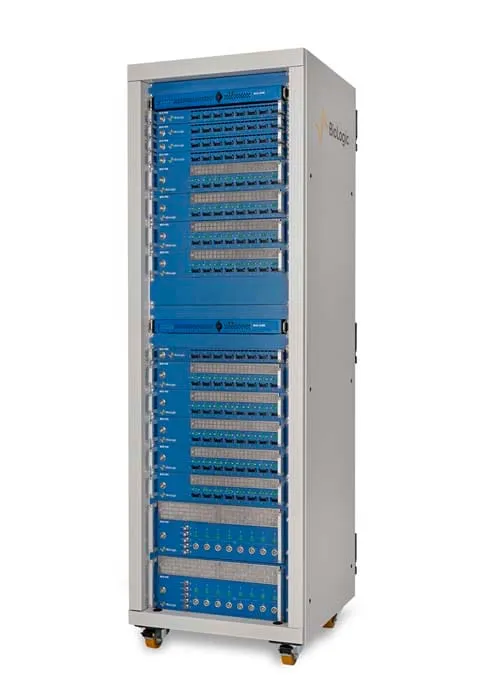Discover the BCS-900 Series: The Ultimate Solution in Battery Testing
At the forefront of battery testing innovation, the BCS-900 Battery Cycler series by BioLogic sets new standards for precision, performance, and usability. Leveraging the esteemed BioLogic’s history of reliable instrumentation, the BCS-900 series introduces a transformative approach to battery testing. Designed to satisfy the rigorous demands of battery research and development, this series combines exceptional performance with the intuitive BT-Lab Suite software, heralding a new era in battery testing technology.
Modular Design for Maximum Flexibility
The modular nature of the BCS-900 series offers tailored solutions for a wide array of applications, from academic research to industrial quality control. With models suited for everything from small coin cells to large power cells, this series ensures that your testing capabilities can scale with your needs. The inclusion of high-precision coulometry, rapid data acquisition, and advanced Electrochemical Impedance Spectroscopy (EIS) solidifies its position as an indispensable tool for battery analysis.
Unrivaled Accuracy and Efficiency
Each BCS-900 model boasts a unique combination of features, including multiple current ranges, unparalleled voltage and current resolution, and the flexibility to interface with external equipment. This comprehensive approach ensures the delivery of precise, reliable data, fostering accelerated development cycles and enhanced battery performance insight. Additionally, the series’ smart sampling and fast bandwidths enable efficient data collection, critical for advancing battery technology.
Empowering Research with BT-Lab Suite
The integration of the advanced BT-Lab Suite software represents a leap forward in battery testing, offering seamless control, monitoring, and analysis of battery tests. From reliable test execution to in-depth data analysis, this software enhances the user experience, making complex battery testing more accessible and insightful.
Applications & Industries:
- EV Battery development and validation
- Energy storage system testing
- Battery cell research & quality control
- Lithium-ion battery cycling
- Automotive battery testing to IEC 62133 standards
Why Choose BCS-900 from Cromocol:
- Local service and support in Sweden, Norway Finland & Denmark
- Installation and training
- 2-year warranty with extended options
- Compatible with all battery chemistries
- Free software updates
Nordic References:
Trusted by leading Nordic companies including automotive manufacturers, battery developers, and research institutes across Scandinavia.
Request Quote: Contact our team for pricing and configuration options. Leasing available.

